DermLink Grants 2022: How the IFD is Making a Difference in Global Skin Health
7 Apr 2023
The International Foundation for Dermatology (IFD), the humanitarian arm of the International League of Dermatological Societies (ILDS), offers funding for one-time projects and initiatives that are in low-resource areas and last no longer than 12 months through DermLink grants. This is consistent with the mission of the ILDS, which is to achieve the best possible skin health for all people globally.
Reach of the DermLink 2022 Grants
In 2022, the IFD awarded 10 DermLink grants totalling over $47,000 for projects in nine countries across the continents of Africa, Oceania, and Asia through the very kind support of the ILDS member organisations as they submitted the grant applications to the IFD, either as a project sponsor or to undertake the project directly themselves.
Over 4,400 lives have been directly impacted by these projects in 2022
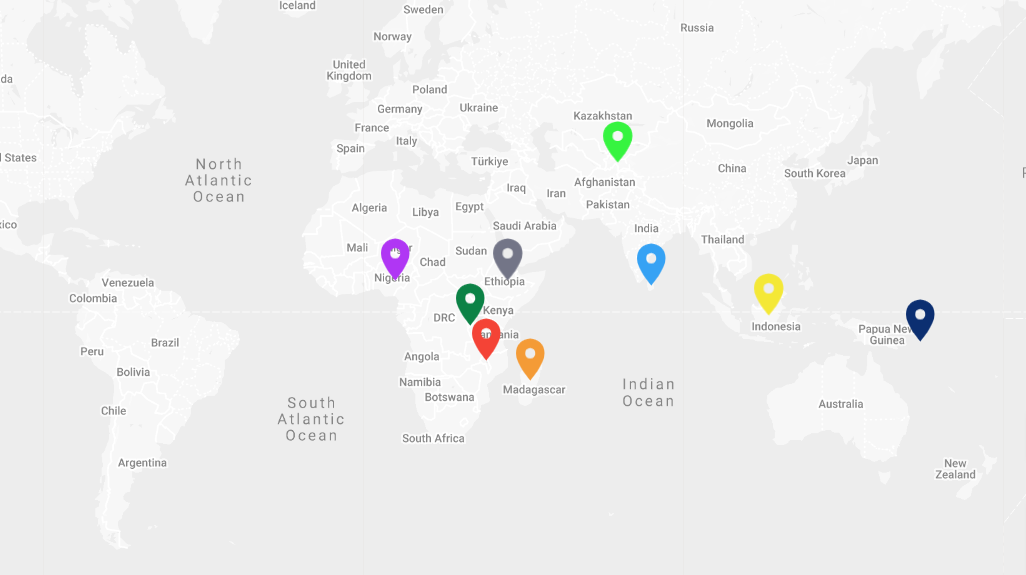
Impact of the DermLink 2022 Grants
Over 4,400 lives have been directly impacted by these projects since they started near the end of 2022, and this number is continuously rising as several of them are still in progress.
The impact of the DermLink 2022 grants cut across the following:
Public Engagement Project on Leprosy in Indonesia - Dutch Society of Dermatology and Venerology (NVDV)
In eastern Indonesia, the grant was used for a public engagement project aimed at raising awareness, improving community literacy, and highlighting the invisible human burden of leprosy.
Establishing a Pacific Dermatology Society – Australasian College of Dermatologists
In the Pacific Islands, the DermLink grant was used to establish a Pacific Dermatology Society. This society aims to provide better access to dermatological care in the region.
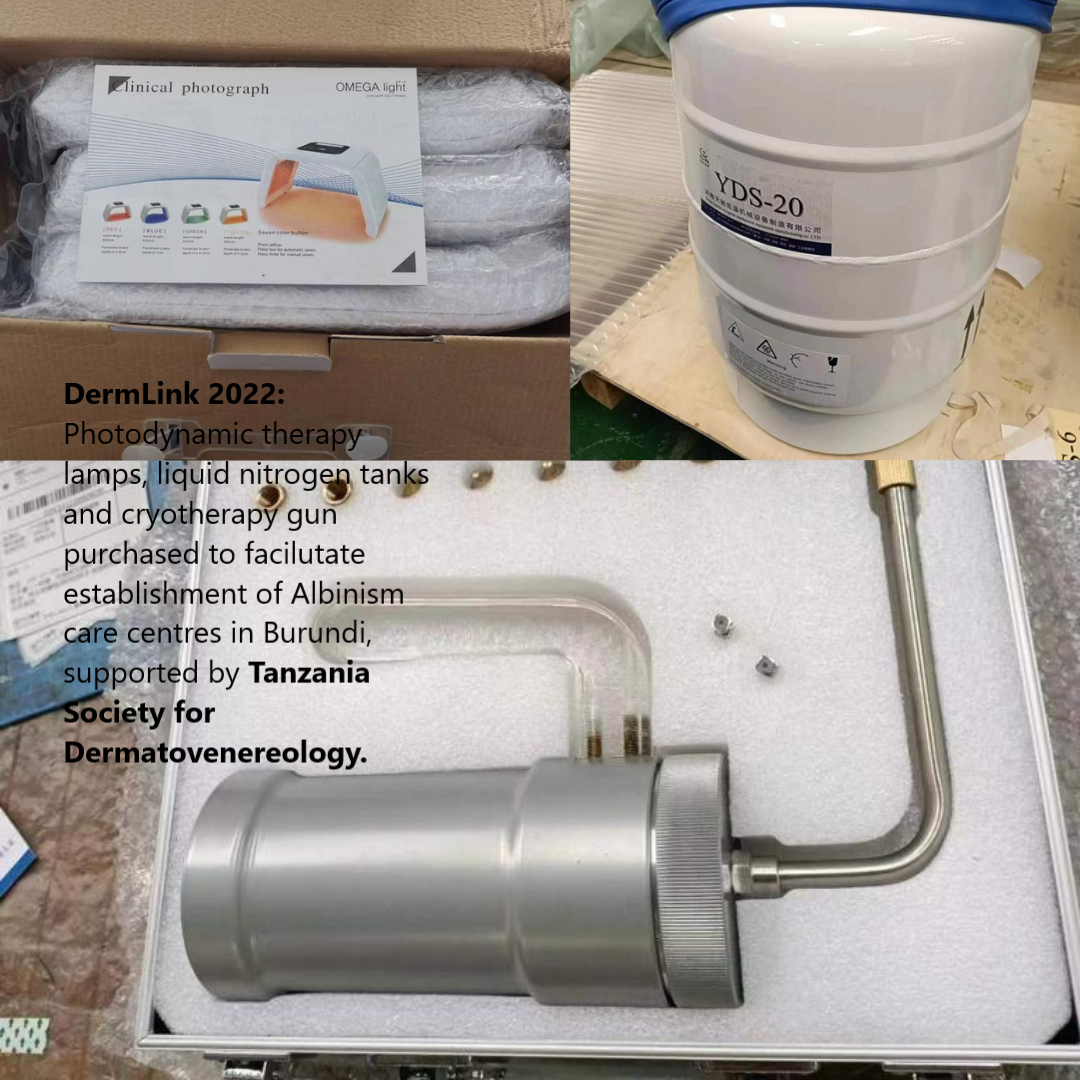
Establishing Albinism Care Centres in Burundi - Tanzania Society for Dermatovenerology
The DermLink 2022 funding was utilised in Burundi to develop albinism care centres so people with albinism can receive medical support.
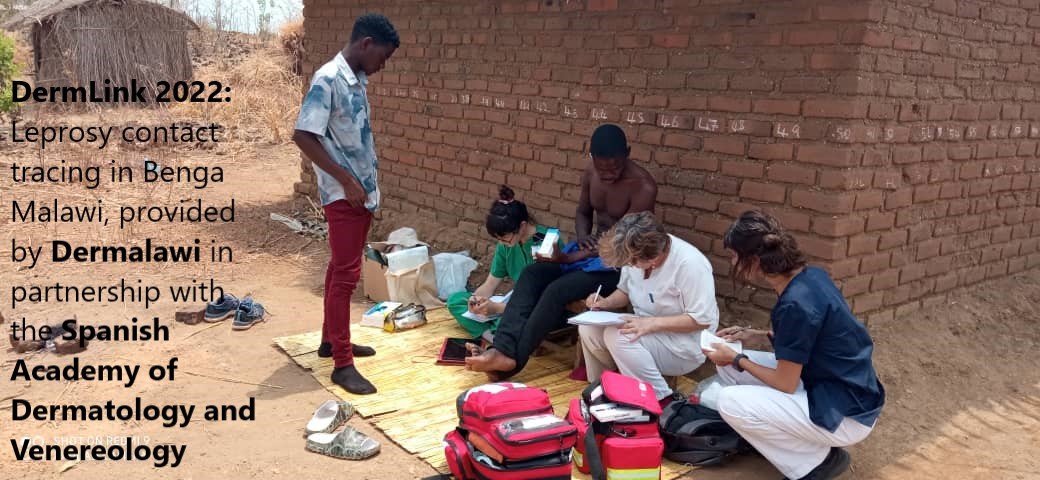
Empowering Health Workers in Malawi - Spanish Academy of Dermatology and Venereology (AEDV)
Local health workers in the Benga region of Malawi received the resources they needed to create preventative strategies and handle the most prevalent health issues in the area, self-sufficiently. This included initiatives such as nixtamalization of maize for the prevention of pellagra, leprosy contact tracing, and dermatological clinic and surgical camps for scabies, tropical ulcers, and skin cancers in people with albinism.
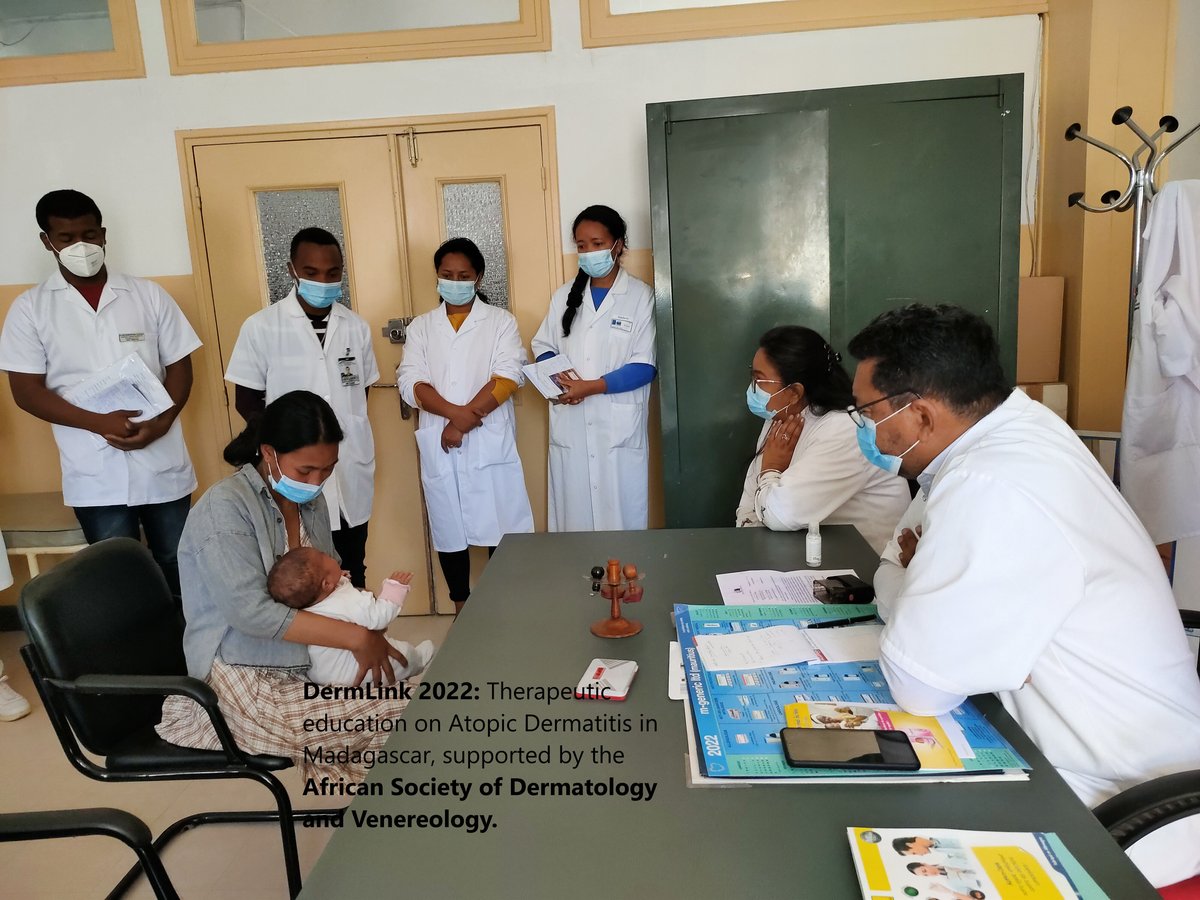
Therapeutic Education on Atopic Dermatitis in Madagascar - African Society of Dermatology and Venereology (ASDV)
In Madagascar, the grant was used to provide therapeutic education to patients with atopic dermatitis. This education helped patients to better manage their condition and improve their quality of life. Continuing medical education courses on the pathophysiology of atopic dermatitis were organised to assist Madagascar clinicians in responding to patients' and their families' inquiries about atopic dermatitis and beginning the therapeutic education process with these patients.
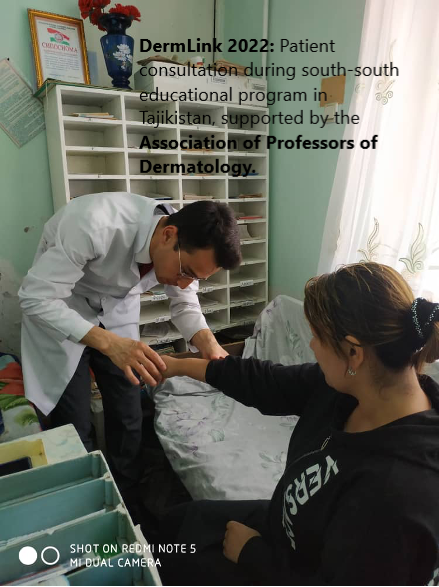
Virtual South-South Educational Program in Tajikistan - Association of Professors of Dermatology
In Tajikistan, the DermLink grant was used to expand a virtual south-south educational program that aims to advance dermatology in the region.
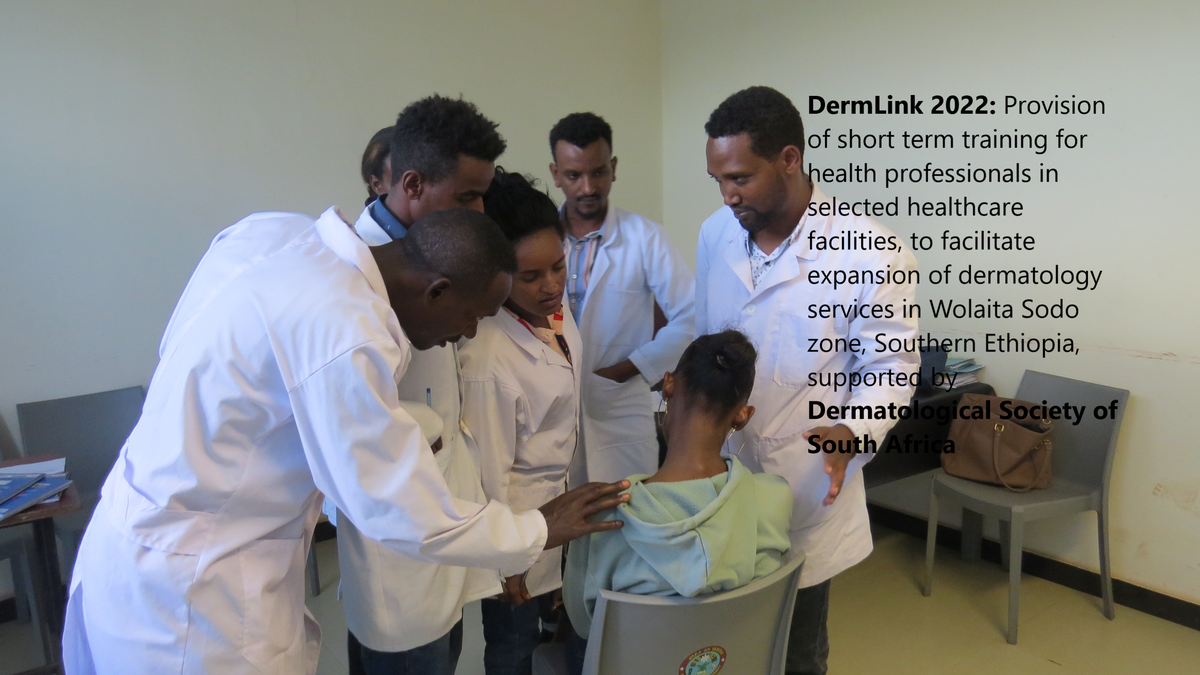
Expanding Dermatology Services in Ethiopia - Dermatological Society of South Africa
The DermLink funding was used to provide short-term training for health professionals from selected public health facilities in Wolaita Sodo zone, southern Ethiopia. This training was aimed at expanding dermatology services in the area.
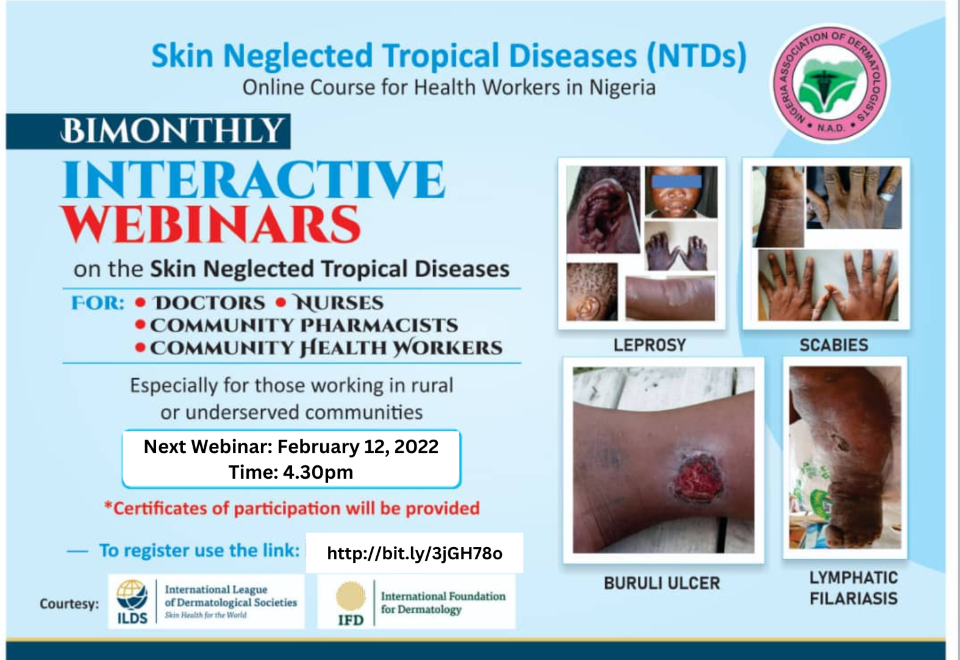
Virtual Training on Skin Neglected Tropical Diseases in Nigeria - Nigerian Association of Dermatologists
In Nigeria, health workers received virtual training on skin neglected tropical diseases. This training was designed to help health workers provide better care to patients in remote and underserved areas.
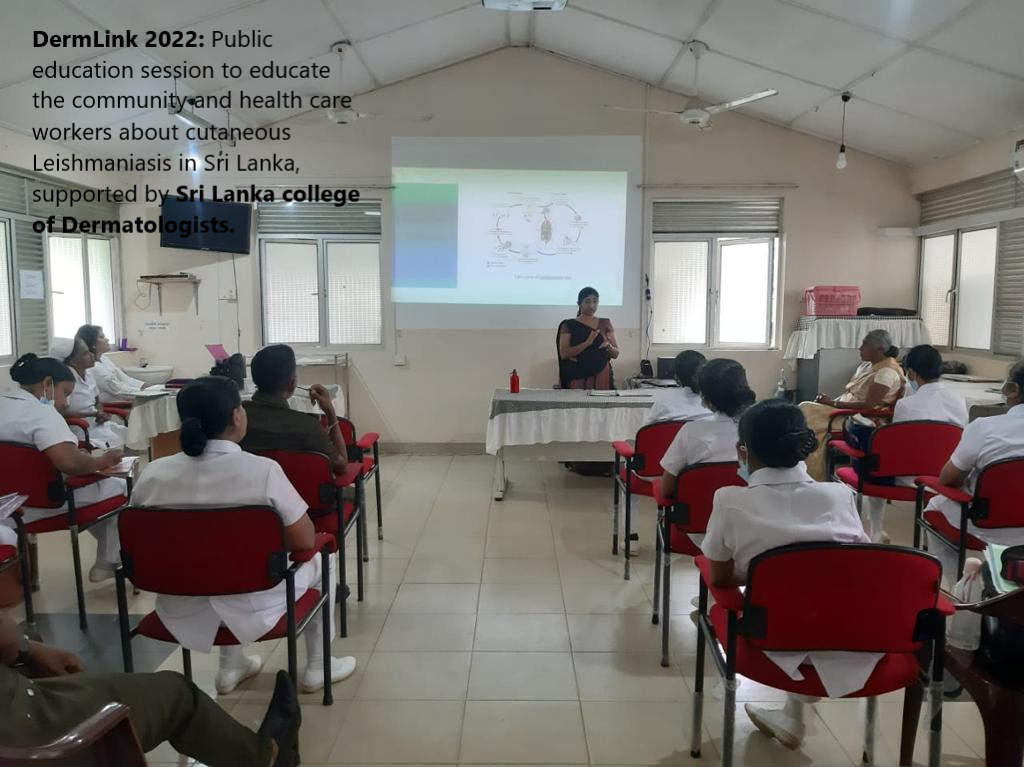
Establishing an Electronic Data Registry in Sri Lanka - Sri Lanka college of Dermatologists
The DermLink grant was used to establish an electronic data registry for cases of cutaneous leishmaniasis in Sri Lanka. This registry will help health workers to better track and manage cases of this disease.
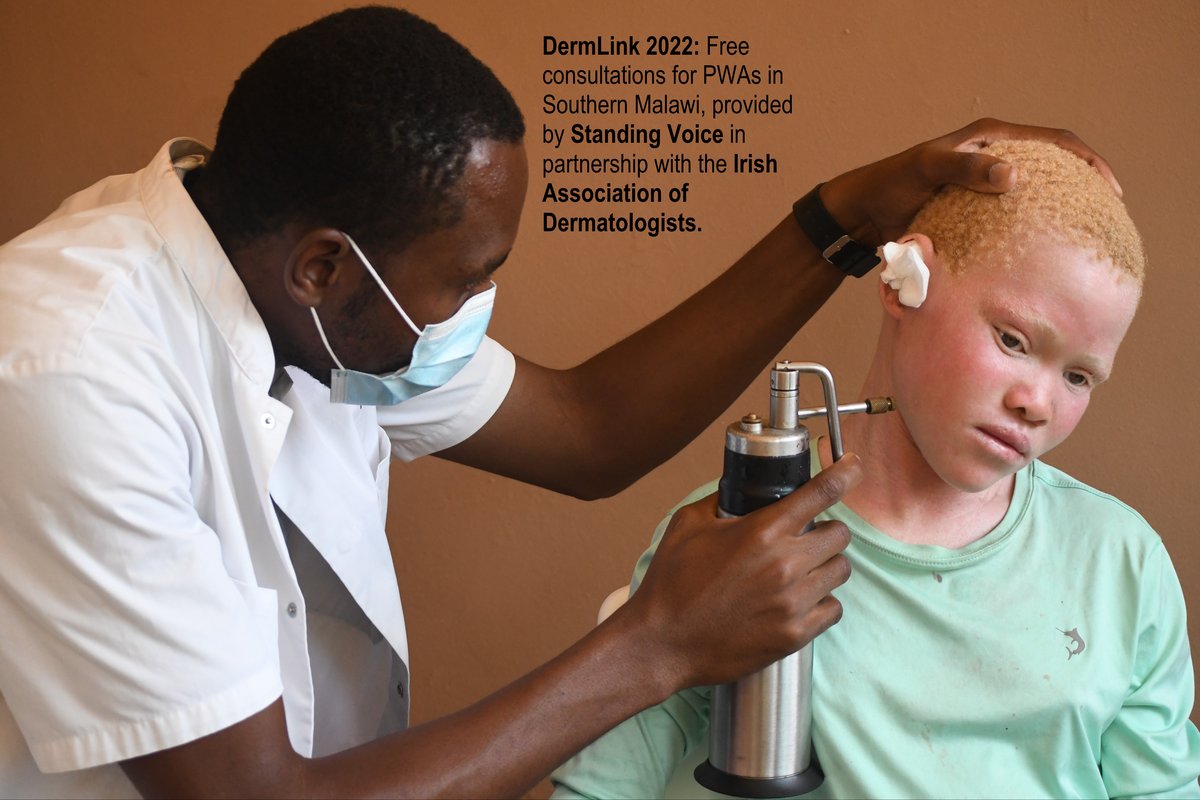
Building the Capacity of Health Professionals in Malawi - Irish Association of Dermatologists
In southern Malawian districts of Blantyre, Phalombe, and Mulanje, health professionals received training that better equipped them to tackle the skin cancer crisis facing people with albinism in these areas. In addition, people with albinism also received dermatological care including minor surgical procedures.
The IFD is thankful for the support provided by the outstanding individuals who oversee these projects across different countries, as well as by the ILDS member organisations, primary contact persons, volunteers, and local support personnel who relentlessly labour to make skin health accessible to everyone, especially those in low-resource areas.
About the IFD
The International Foundation for Dermatology (IFD) was founded in 1987 with the purpose of carrying out the humanitarian work of the ILDS. While the ILDS has a broader strategic vision encompassing skin health, the IFD specifically focuses on initiatives aimed at supporting low-resource areas.
The Foundation is dedicated to promoting innovation, establishing new partnerships, and developing collaborative ways of working towards our vision of accessible, effective, and available skin health services for all patients in low-resource areas, irrespective of ethnicity, disability, or social background.
In order to help ILDS realise its mission of promoting skin health throughout the world, the IFD supports initiatives in Africa, Oceania, Asia Pacific, and South America. We are constantly seeking novel ways to expand our impact and reach.
In addition to DermLink grants, other IFD projects include In-country Support, Strategic Innovation Grants, the Regional Dermatology Training Centre (RDTC) in Moshi, Tanzania, GLODERM, and the Community Skin Health (CSH) journal.